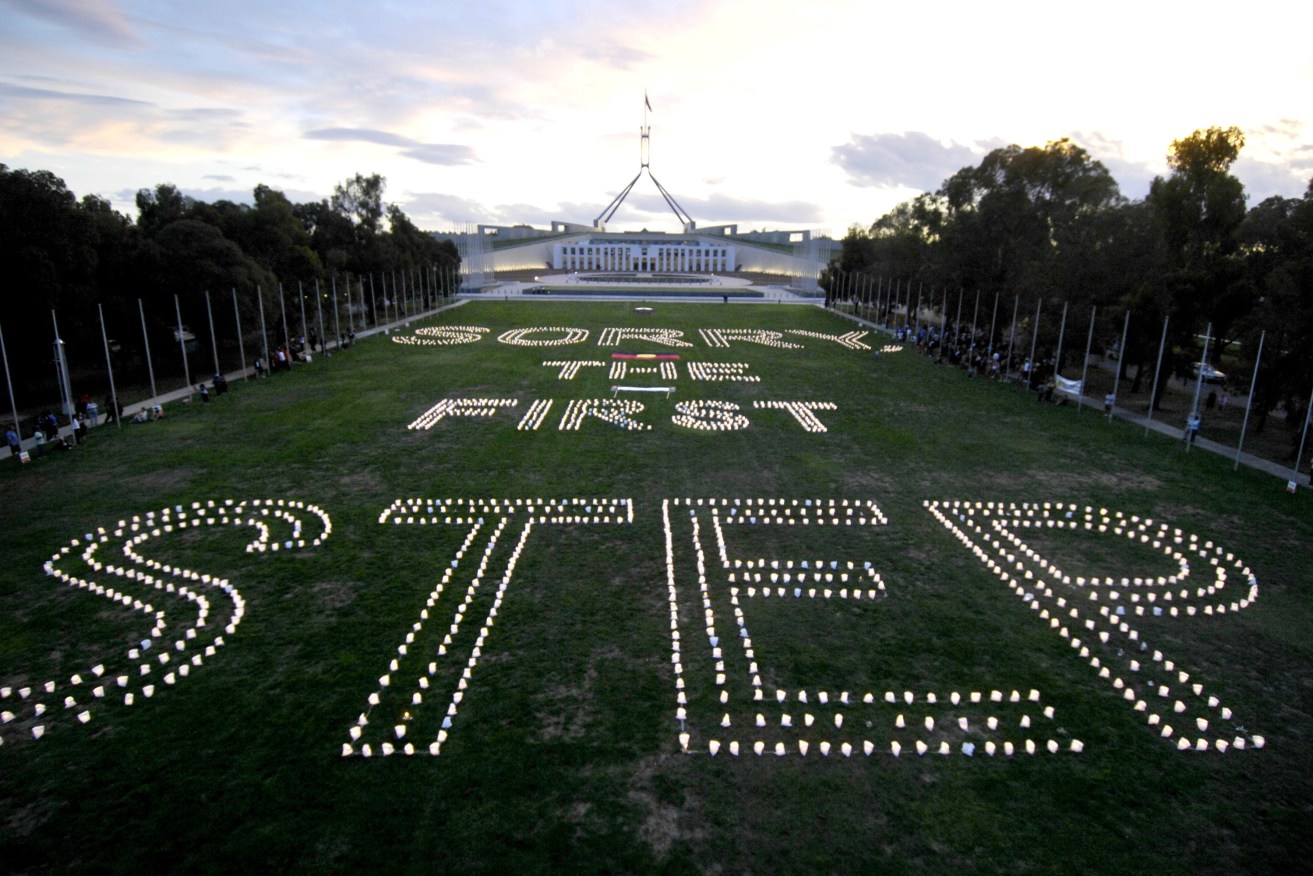Latest report on indigenous incarceration must be the last
The latest report into Australia’s shameful rates of indigenous incarceration requires immediate action, writes Law Council of Australia president Morry Bailes.


In the decade after the Federal Government apologised to the stolen generation, indigenous incarceration rates increased by 75 per cent. Photo: AAP/Alan Porritt
Aboriginal and Torres Strait Islander people are among the most imprisoned people in the world as a percentage of the population.
Three decades ago the Royal Commission into Aboriginal deaths in custody established the key factors of the disproportionate rate of Indigenous incarceration: entrenched disadvantage and poverty combining with an endemic cycle of trauma and disenfranchisement.
The 1991 Royal Commission was sparked by public outcry over the high numbers of Aboriginal people who were dying while in police or prison custody.
However, a key finding of the Royal Commission was that Aboriginal people did not die at greater rates – they died in numbers proportionate to the rates they were imprisoned, which was seven times the rate of the ordinary population.
Last week, the Australian Law Reform Commission, in its Pathways to Justice report, confirmed this rate has now ballooned to 14.7 times for men and a staggering 21.2 times for women.
It was urgent then. It is a crisis now.
In the decade since the Australian Government’s apology to the stolen generation, the imprisonment of Aboriginal and Torres Strait Islander peoples has increased by close to 75 per cent.
We know the statistics, but we must repeat them until they begin to drop: despite representing less than three per cent of the population, 27 per cent of all Australian adults in prison identify as Aboriginal and/or Torres Strait Islander.
As a nation, we must ask ourselves why we continue to tolerate these numbers and why our governments, despite numerous reports and recommendations, have failed to act.
The ALRC’s report sets out in 35 recommendations a blueprint for dramatic legal reform to address this national crisis.
This must be the last report into the issue. It must be acted upon, not shelved like the 1991 Royal Commission’s 339 largely ignored recommendations.
At the outset, it must be noted that all programs aimed at reducing recidivism must include the input of Aboriginal and Torres Strait Islander leaders and communities at every stage. A top-down approach has not and will not work.
The ALRC recommends abandoning imprisonment for unpaid fines.
Prison should never be a consequence of a regulatory offence, encouragingly some jurisdictions have begun to recognise this.
Poverty, itinerancy, social isolation and low levels of literacy all directly contribute to Aboriginal and Torres Strait Islander over-representation as fine recipients.
Instead of acting as a deterrent to getting the fine in the first place it criminalises the recipient, whilst exacerbating poverty and disadvantage.
Abandoning this punitive measure would immediately contribute to a reduction in the incarceration of Aboriginal and Torres Strait Islander people.
Similarly, mandatory sentencing disproportionately affects Aboriginal and Torres Strait Islander people and denies judges the ability to exercise discretion and independence.
The Law Council backs the ALRC recommendation to abandon mandatory sentencing schemes, which undermine the fundamental guarantee of equality before the law.
Incarceration isolates people from their support networks. If we are to make headway in reducing the rate of incarceration we must keep people connected with their community and engage their community with the system.
Punishment must be just, not punitive. It should also engage the community and serve to rehabilitate the offender.
ALRC recommends the adoption of bail and sentencing options that take into consideration cultural factors, as well as interpreter schemes.
Someone who is illiterate, innumerate and speaks limited or no English should still be able to engage with the legal system of the country they live in. Yet, many Aboriginal and Torres Strait Islander people face a system that is hostile to them because of the circumstances of their identity.
In a submission to ALRC, the Change the Record Coalition, which includes the Law Council, Aboriginal and Torres Strait Islander groups, and other community organisations, identified justice targets as a way to truly deliver on reducing incarceration rates and improving safety.
The Law Council firmly believes by adding criminal justice outcomes to Closing the Gap targets the Australian Government can provide national leadership and drive coordinated action.
Justice targets, as recommended in the ALRC report, help formally recognise that the disadvantages Aboriginal and Torres Strait Islander people face are exacerbated, and sometimes created, bylaws and policies that have a disproportionate effect on Aboriginal and Torres Strait Islander communities.
Justice targets offer a tangible way to measure whether efforts are working. They also address the legal system as a whole – putting the onus to reduce incarceration and recidivism across the justice system, not just on community groups or individual offenders.
They become the yard stick for the overall race to address what the Australian Government has recognised as a “national tragedy”.
The government has argued that reducing incarceration rates is best achieved by addressing the underlying causes of imprisonment, but this ignores how the justice system can exacerbate disadvantage.
The time for inaction is over.
Australia cannot afford another review to sit on the government’s shelves, gathering dust.
This is a national crisis which requires concerted, consistent, and immediate action.
Morry Bailes is the managing partner at Tindall Gask Bentley Lawyers, president of the Law Council of Australia and is a past president of the Law Society of SA. The opinions expressed in this column are his own.




